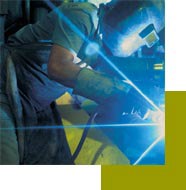Business and industry in Norway - The mechanical-engineering industry
Guidelines/brochures | Date: 28/06/2001 | Ministry of Trade, Industry and Fisheries
Originally published by: Ministry of Trade and Industry
| Number of companies | 4039 |
| Number of employees | 103913 |
| This sector’s export share | 30 |
| Gross product in percentage | 6,3 |
The mechanical-engineering industry is Norway’s largest industrial sector and is extremely varied. Parts of it are strongly technology-based and R&D intensive, while other parts consist of typical labour-intensive companies. Aker Maritime, Kværner, etc, have developed modern offshore yards as a result of the activities in the petroleum sector. The petroleum and hydropower industries have also created a number of major competence environments that are now utilising their knowledge in new parts of the industry. Companies such as Kongsberg Offshore and Kværner are considered to be world leaders in their fields. Others have specialised in supplying machinery and equipment to power stations and the process industry. These are companies that, together with the yards, belong to Norway’s traditional "heavy" mechanical-engineering environment. The mechanical-engineering industry also manufactures serially produced products ranging from simple finished goods to heavy steel structures. These processes are often extremely labour intensive with a low technology content.
Metal works are spread all over Norway. These mainly manufacture serially produced finished and semi-finished goods – world-renowned products such as fishhooks made by O Mustad. The competition from low-price countries in eastern Europe and Asia has grown considerably over the past ten years, but Norwegian manufacturers have responded to this by creating a brand image of quality and delivery dependability. Norwegian automotive-component manufacturers, with Kongsberg Automotive and Hydro Automotive Structures in the lead, have gradually become key subcontractors to a number of automotive manufacturers in Europe, Japan and the USA. The engines and motors manufactured include, among other things, hydroturbine and gas-turbine packages, combustion engines and agricultural machinery. This sector consists of a small number manufacturers who have a few, but large, orders. The industry was formed to cover the needs of the hydropower, maritime, offshore and process sectors. Over the past few years, there have been drastic cutbacks in hydropower developments in Norway and suppliers to the hydropower sector have made a considerable commitment to the export market. Norway also has several major manufacturers of engines and engine parts for large vessels – such as Ulstein Bergen.
Companies supplying the petroleum industry deliver goods and services aimed at the development and operating activities on the Norwegian continental shelf. Their export share is low, but they are focusing on internationalisation more and more. This industry consists of companies that plan, construct, produce and maintain many types of oil and gas installations, both onshore and offshore.
The shipbuilding industry is important to many local communities. There are just under 50 yards that build or can build ships over 100 gross tonnes in Norway. These yards mainly build small or medium-sized specialised ships, such as product and chemical tankers and high-speed passenger ferries. Norwegian yards are known for their rapid delivery times and the flexibility of their production processes. Most of the yards are located in the west of Norway. Almost half of the some 6 500 people employed in shipbuilding work in the county of Møre og Romsdal. More than half of the Norwegian yards employ fewer than 100 people, while around a quarter have more than 200 employees. The Aker Yards Group controls several of the yards in Norway.
The mechanical-engineering industry also consists of companies manufacturing generators, transformers and other technical equipment. Many of these companies are small, with operations that are based on deliveries by subcontractors. International competition, specialisation and R&D have, however, turned parts of the technology industry into major companies within their own niche sectors. Micro-technology is an area that will probably be very important to Norway’s sensor and instrumentation industry in the years to come. One of the major companies in this industry is SensoNor, which is one of the world’s leading manufacturers of silicon-based sensors, with an approximately 75-per-cent share of the automobile airbag-sensor market.
| Company | Product |
| Kongsberg Automotive, Hydro Automotive Structures | Car components |
| Ge Packaged Power, Ulstein Bergen AS, | Engines and motors |
| Kverneland | Agricultural machinery |
| Aker RGI, KværnerUmoe | Petroleumsrettet leverandørindustri |
| Aker Yards, Ulstein, Umoe, Fosen Mek. verksted | Shipyards |
| ABB, Møre Trafo a/s | Electric motors and materials for generating electricity |
| Siemens, Glamox, Sønnico | Control panels and electrical equipment |
| Alcatel Telecom Norway a/s, Garex a/s, TeleCast Norge AS | Communication systems |
| AME Space a/s, Nera a/s | Equipment for communication, earth-observation and scientific satellites |
| Alcatel Kabel Norge AS, Draka Norsk Kabel AS | Cables |
| Adtranz, Rodeløkken Mek. Verksted | Railway and railway-carriage materials |
The figures showing the number of employees and companies and the gross product are excluding the manufacture of office machinery, computers, radios and televisions. These excluded figures are stated under the employment and company figures for the information and communications industry. Back >
|
|
|
| |||
The mechanical-engineering industry | ||||


